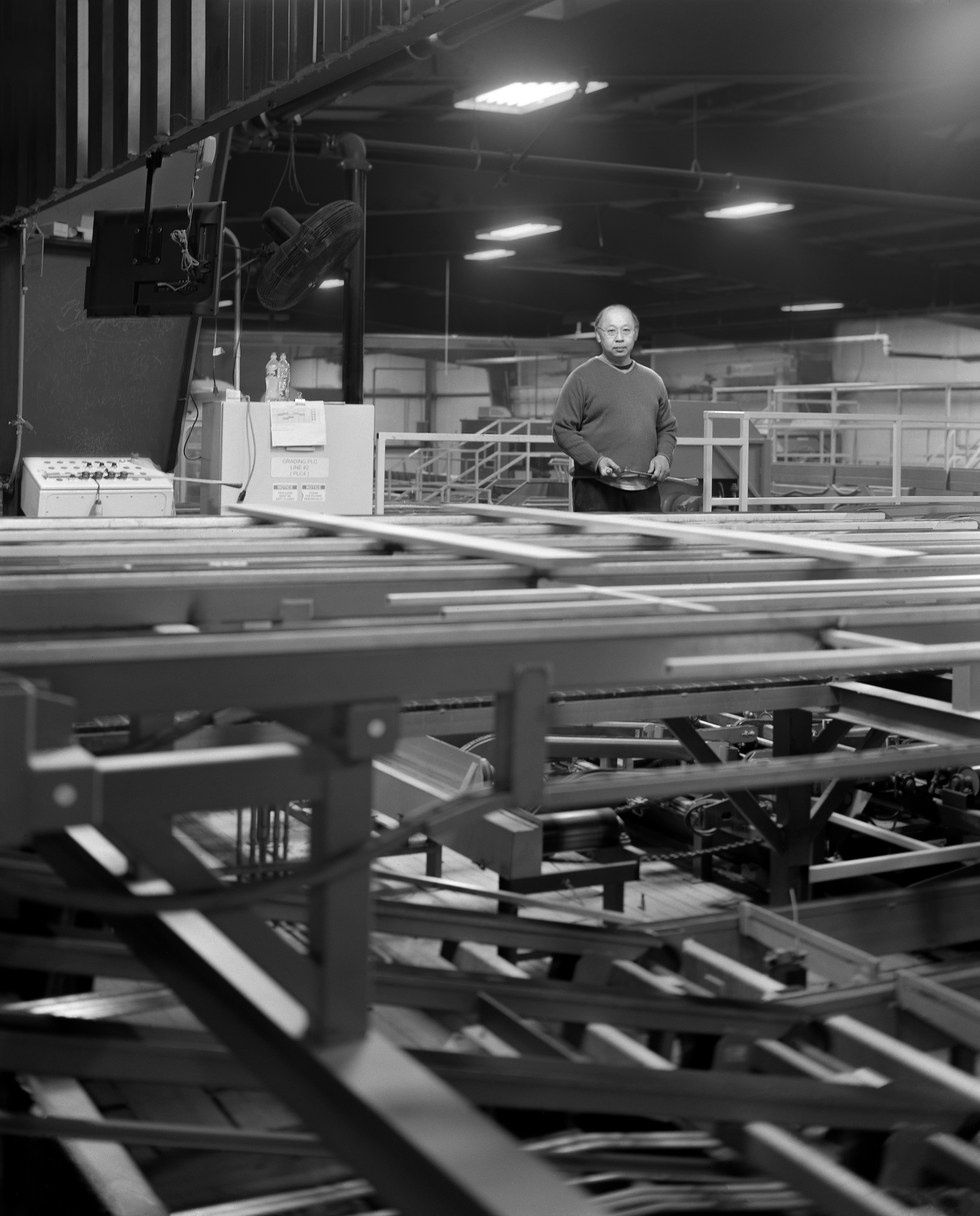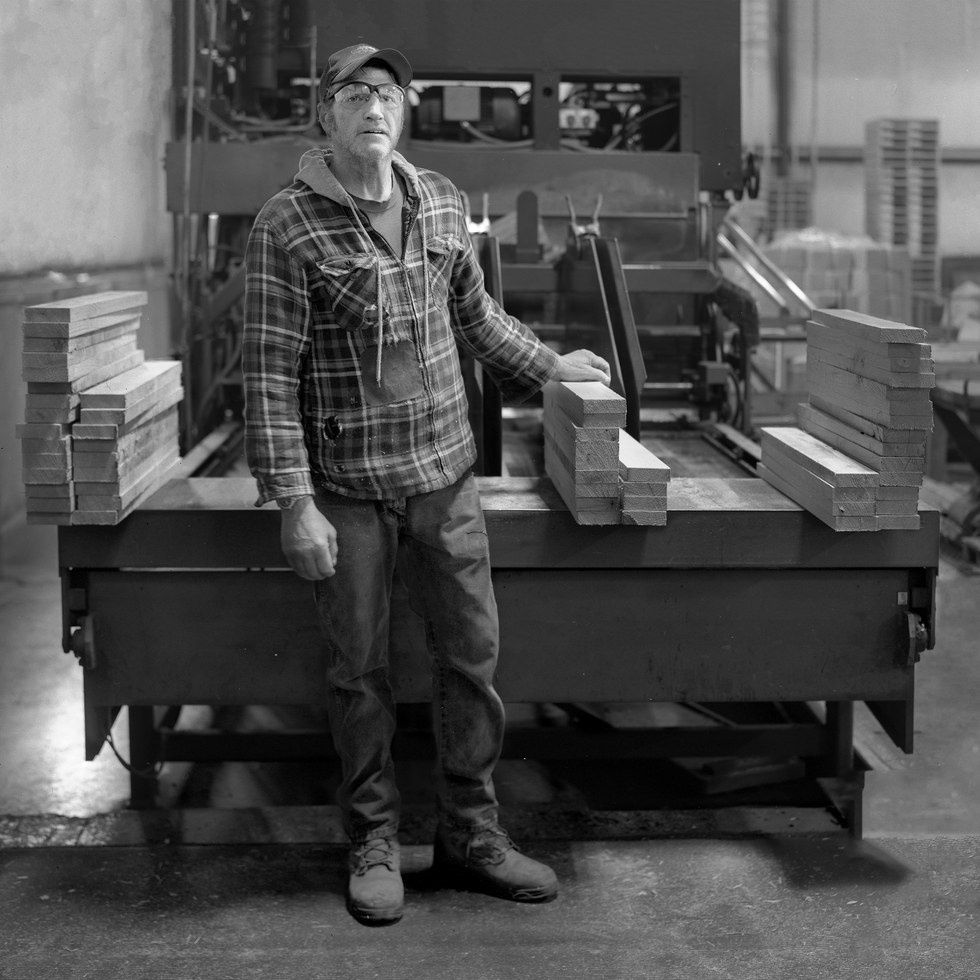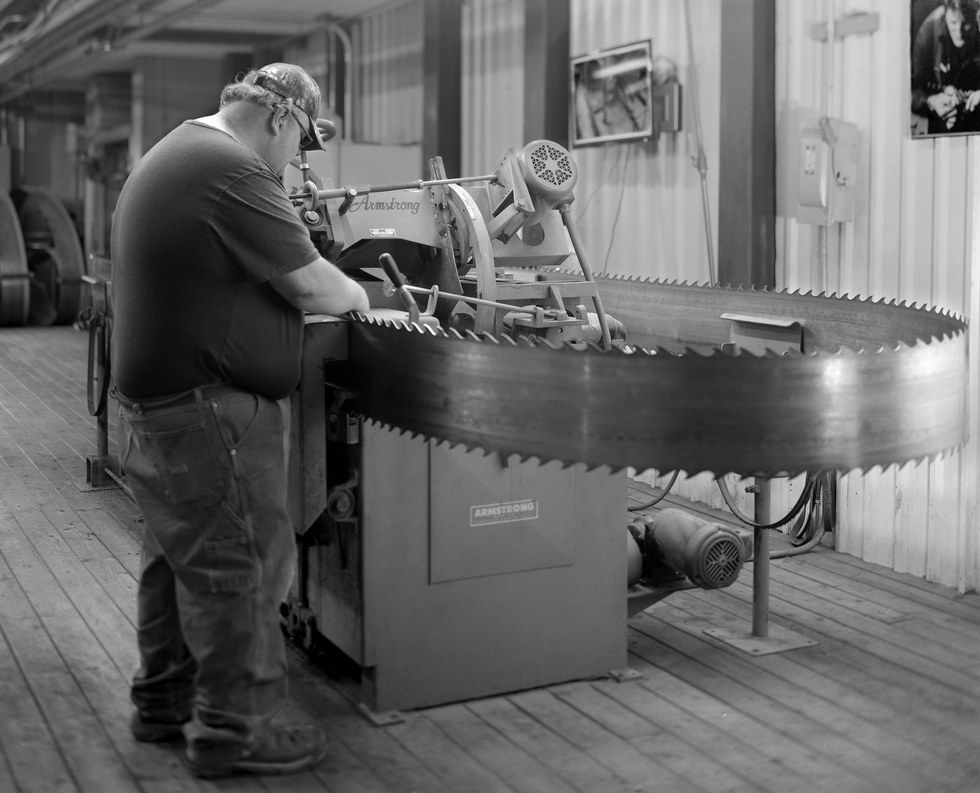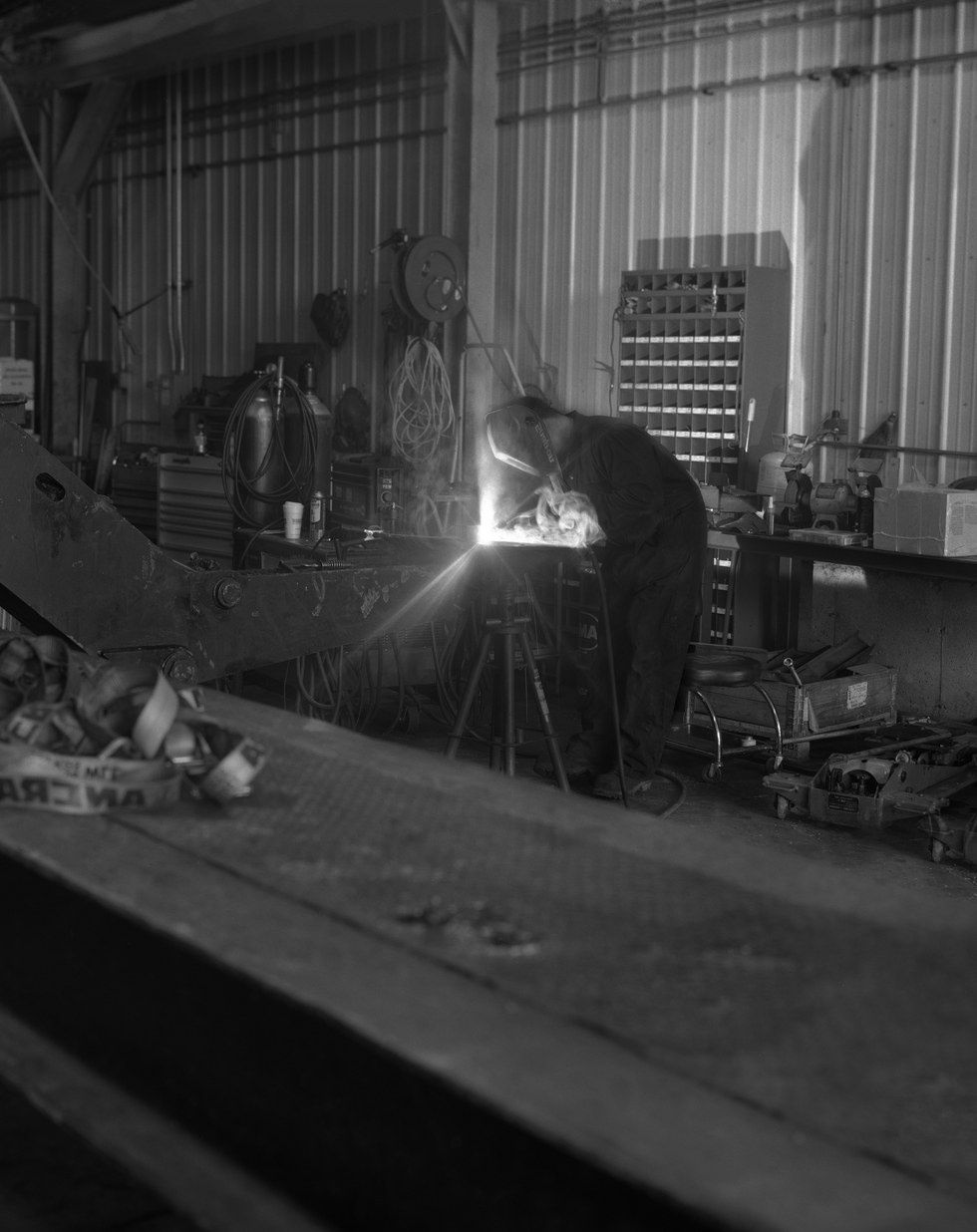In this portfolio, I took my 4”x5” view camera to several locations around Henniker, NH, in order to photograph the vibrant working class community upon which our small town relies.
Henniker is a town built on its locally owned industry, and the reason I think that our working class is special, is because in an age where multinational corporations produce most of our raw materials on huge scales, the Henniker working class still clings to more traditional, and much smaller, forms of industry. In Henniker, there is always a truck from some small business to be seen driving around: whether it be a logging truck, an electrical truck, a fuel tanker or a sewage service. We only have two corporately owned buildings in the town: a Mobil, and a Dunkin Donuts (with arguments beginning now over the potential creation of a Dollar Tree store). Henniker, through its ability to keep its industry local, has created a small, self-sustaining, local economy, which is entirely its own.
The reason I am so interested in the working class of Henniker, aside from my ties to the community, is because -- in the context of our society at large -- the working class, this majority group, has been given minimal attention throughout history. In the larger picture, there are no textbooks in high school or college that tell us about the lives of everyday people: the ones who really, in the truest sense of the phrase, built our country. Their stories have been swallowed up in a sea of history: there is no glory, in the modern sense, in being a worker. It is tough: you will be exhausted, sweaty, dirty. You may be laid off unexpectedly, indefinitely. You will work until the job is done, regardless of your physical condition, because that is the true working class condition. And it is almost certain your work will go unacknowledged, aside from a paycheck that is barely enough to survive on.
I think that there is a profound sadness and stoicism inherent in the condition of any working class person: their voices, their needs, are routinely drowned out by the desires of those "above them". This is a common attribute of capitalism: it occurs across racial, sexual, territorial and religious lines, to varying degrees. But, along with this sadness, is what I believe to be divine honour: the working person who pours their full self into a job, not for fame, nor recognition, nor achievement, etc. I've learned that more often than not, the working class consists of people who are smart enough to be doing whatever they want, but have chosen to sacrifice the risk of success for the assurance of having enough money for their family, or because it's what they deem honorable, or because it's just in their family tradition: they are some of the last people, in a society full of self-servers, willing to step up and make true sacrifices, every single day, often for people who they will never even meet.
I chose to photograph these subjects using a 4x5 view camera, using black and white 400 speed film, and then printed the pieces on large archival pigment prints on a bright, matte paper. There are several reasons I chose the view camera, and the first is, perhaps, obvious. The amount of time and energy that goes into setting up for even one shot with a view camera, between 15 and 20 minutes, is meant to be a tip of the hat towards the amount of work done by these men and women day in, and day out. Secondly, this medium allowed a historical connection to be formed: the black and white, and the general grain of a 4”x5” camera is very nostalgic, and reminds the viewer that this sort of grueling work exists not only in our contemporary world, but has existed throughout all of history (and has in fact been declining in severity throughout history). Thirdly, the camera itself allowed for a great connection to be made between the subject and the myself: the camera acted as an icebreaker of sorts, and I think that by showing the subjects that I was willing to put in some work to take their portrait, they in turn were able to think about the passion, or lack thereof, they have for their own job, which I believe helped make the whole project much more passion filled, and truthful.
I think that the main point of this project, when looking back on it, is to make a statement about working hard, passion, boredom and routine. Boredom is a result of a routine gone sour, and leads to dispassion towards one's work: the secret to living a happy life is to find the variance in all things -- even the most grueling, or hum-drum, or tortuous, of activities. The key to living a passionate life is to approach work with a passion: if one's work life is fulfilled, most other things will fall into place. And I don't just mean finding a way to feel like you are doing well, or making enough money, or are doing the right thing: by feeling "fulfilled", I mean just being able to find a job you can go to every morning, knowing full well you will be spending week after week after week after week after week after week working there, and not feel that familiar pit of legitimate, existential horror, opening up inside your stomach.
























